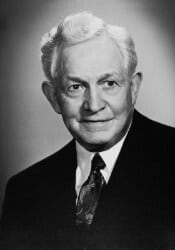
“The peace of Christ does not come by seeking the superficial things of life, neither does it come except as it springs from the individual’s heart.” He said further that this peace is “conditioned upon obedience to the principles of the Gospel of Jesus Christ. … No man is at peace with himself or his God who is untrue to his better self, who transgresses the law of what is right either in dealing with himself by indulging in passion, in appetite, yielding to temptations against his accusing conscience, or in dealing with his fellowmen, being untrue to their trust. Peace does not come to the transgressor of law; peace comes by obedience to law, and it is that message which Jesus would have us proclaim among men.”
| Conference Report, Oct. 1938, p. 133.